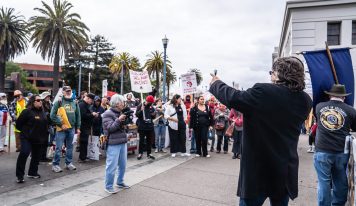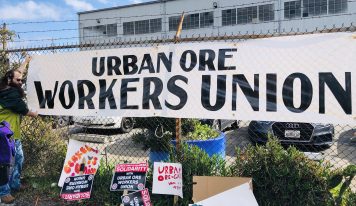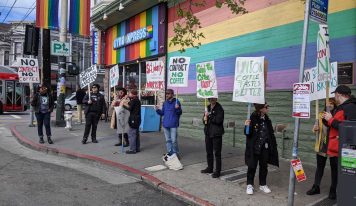San Francisco — As a 26-year-old, indigenous, queer, and Latina Democratic Socialist, Jackie Fielder is looking for more ways to grow the movement built by her campaign for the 2020 California State Senate in San Francisco. Fielder ran a campaign focused on giving a voice to marginalized citizens. It began with little name recognition, but her message resonated enough with San Francisco voters for her to take home 41% of the vote. Just days after the election in November, the SF Examiner levied the question “what’s next?” Recently, the San Francisco Independent Journal had the chance to speak with the young activist to find out what exactly is next. Check out her exciting developments for a progressive incubator in California.
Can you explain what the Daybreak PAC is?
So I started Daybreak PAC because I wanted to spare other amazing corporate-free candidates from the headaches of starting a grassroots campaign. And we also do advocacy in the form of text banking and phone banking for important bills in the state legislature. And third, we have been doing phone banking of seniors in Bayview-Hunters Point to ensure that they all have access to vaccine information. So those are the three prongs of the Daybreak PAC, and the reasoning is because a lot of organizations, while they do endorse candidates, they’re not usually involved in the actual running of the campaign. There’s a lot that goes into a campaign; there’s a lot of different tasks that need to get done every single day. Fundraising is one of the biggest. And of course, directing and managing fields to contract voters is also the biggest part. So, a lot of that has to happen from scratch for grassroots, corporate-free candidates, even before they get to the endorsement. It’s about fixing the pipeline of support for candidates that may not necessarily have access to it.
Is that a takeaway from your recent state senate campaign? Is that something you learned from and wanted to do and maybe didn’t have yourself?
No, I did have it. Luckily in San Francisco, we’ve been able to hone a very refined method of organizing here in San Francisco and there’s plenty of talent, which is why my campaign was as successful as it was, even in a pandemic even for being a first-time candidate. We raised $777,000 and got 191,000 people to check the box next to my name. But that doesn’t happen just because I get on the ballot—that takes a ton of organizing, a ton of experience that my staff, organizers, and interns have. And it’s very grueling work, demanding and it’s hard to find good people, so we’re also in the business of training organizers to become specifically electoral field organizers. So that’s unfortunately not the case in parts of California. In most parts of California, when organizers win their campaigns, they go on to serve in the government, or if they lose, or if they don’t join into the system, then they’re usually burnt out. So we have to keep a constant incubator going for organizers to be trained in, specifically electoral organizing.
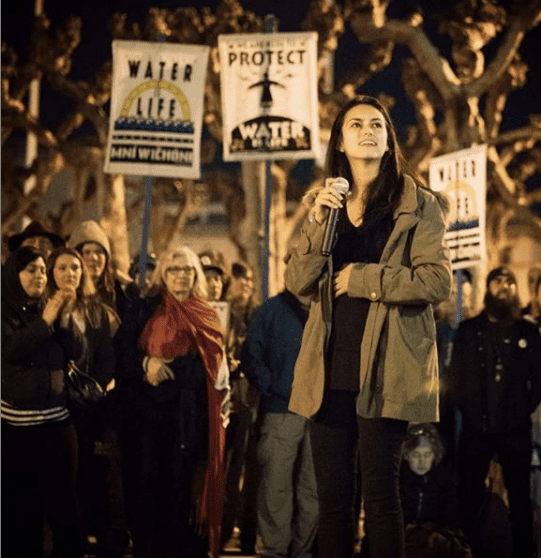
I understand there are some candidates you’ve started to endorse, including Fatima Ibqual-Zubair for State Assembly in 2022. Talk a little bit about some of the candidates that you’re looking for and what you look for in a candidate?
We have three criteria that are pretty strict. It’s very hard to find candidates that fit all three, but one of the criteria is to take a pledge to reject contributions from corporations and billionaires, law enforcement unions, and all special interests. The second criteria is to have a demonstrated record of community leadership. Whether that’s organizing, or whether that person is a teacher or a nurse or a different leader in the community, we want to know that they are accountable to communities on the ground, not just for themselves. And then thirdly, the third criteria is to have a platform that aligns with ours: a Green New Deal for California, single-payer health care, outward thinking, an end to qualified immunity, defunding the police, decarceration, closing down jails, funding our public schools, and so much more. So there’s a lot of criteria, and we have endorsed one candidate, Fatima Ibqal-Zubair, who is running against a fossil fuel and police-backed corporate Democrat in Los Angeles County. She ran in the same cycle I did last year so it’s a very easy choice.
There’s a lot of misinformation out there about your positions in the housing debate. It’s important now that the hustle of the election season is over to take time to clarify the points that many were misled to believe. Can you elaborate on the nuances about building more housing?
It’s a pretty simple explanation. There are people who believe, like my opponent in the last campaign, Scott Wiener, that in the private market that if they were just allowed to do what they want to build, however much housing that they want, that would bring the cost of housing down for everyone. But that’s a neoliberal economic view that I don’t share. I have seen the private market fail us for as long as this country has organized itself. I believe that if we want housing guaranteed as a human right then we need to invest state dollars into building housing that’s affordable to people in low-income and middle-income strata, because the housing that’s being built right now, especially here in San Francisco, most of it is being built for people who are six-figure earners and more. That’s a very simple explanation.
What makes you confident in your progressive democratic socialist perspective?
Because before this country existed, there were millions of people on this continent that organized themselves to make sure that everyone was housed and fed and taken care of. It’s just that the project of colonization has completely destroyed relationships between people and our very basic notions of human rights and decency.
Wildfire season seems to have already arrived. Any word on the indigenous wildfire task force you had mentioned in your campaign?
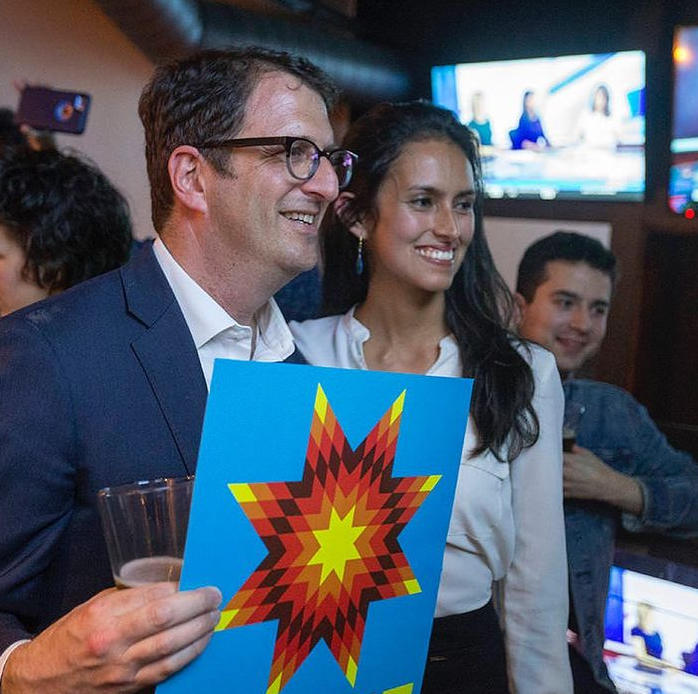
So that exists at the state level, and there is more attention to indigenous tribes and their cultural rights to practice controlled burns. And to be clear, there are cultural practices foremost for California Indian tribes. I’m not a California native, but I did uplift that idea for the state level. I’m not elected, so I don’t have the power to do that. But it’s a much-needed conversation and hopefully, the tribes will continue to be respected in that way.
Are there any people that come to mind that you see around San Francisco politics who need their spotlight amplified a little more?
The organizers behind these electoral campaigns, and in other campaigns. First, Kaylah Williams, who ran Chesa Boudin’s campaign and co-founded the Democratic Socialists of America (DSA) San Francisco Afro-Socialist Caucus is one. Second, Jen Snyder who organized Supervisor Dean Preston’s campaign, and is now his Chief of Staff. She was also a huge reason why Propositions F and C both passed. Those are two people I would specifically want to highlight.
I see you dabble in some electronic music on your podcast. Is there any way that you share music? Is there an outlet for people to find your music? What about everything else you do?
They can become a Patreon member to hear what sounds I do produce occasionally. Also on Instagram, Twitter, and Facebook for those handles. The Daybreak Podcast is on all the podcast platforms.




